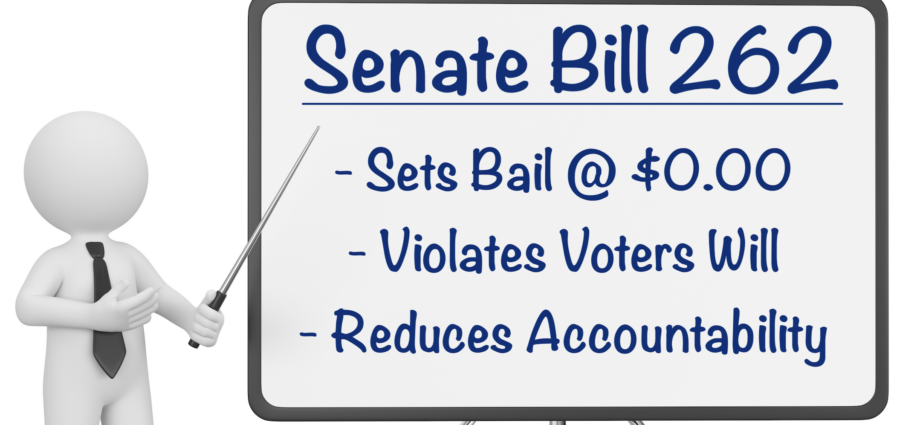Legislators in Sacramento said for two years they wanted to end cash bail. In 2018, they ran into a roadblock of opposition so strong with Senate Bill 10 that the bill stalled out. Then, on a Friday in 2018, a completely new version of end cash bail appeared (a.k.a., a “mushroom bill”), and became law less than a week later. Senate Bill 10 would have eliminated the right to bail and instead required an algorithm to decide whom to deny bail (which was an unconstitutional expansion of the power of the State to deny bail).
Voters weren’t having it. They rejected Senate Bill 10 by voting in favor of overturning Senate Bill 10 by a better than double digit margin with Proposition 25. Not only did they not want to “end cash bail,” but even civil rights groups penned opposition pieces arguing that algorithmic detention-based justice wasn’t a good solution for the cherished constitutional right to bail.
Later, after the voters overturned Senate Bill 10 with the referendum, the California Supreme Court ruled in the case of People v. Kenneth Humphrey, signaling the legislature on how to actually manage the indigency bail problem of people sitting in jail solely because they cannot afford bail. The ruling was clear – that after some period of days when a defendant has not posted bail, we make prosecutors put up clear and convincing evidence that the person is in fact a danger to the community or a flight risk and there are no other appropriate release options, now commonly called Humphrey hearings.
Fast forward to 2021 and enter Senate Bill 262. You’ll be not surprised to hear that the Senate is at again, introducing an overhaul bill not long after the election rejecting the previously overhauled bill in SB 10. Sponsors of SB 262 will tell you that this isn’t SB 10. They are correct – it’s worse. All this despite the fact that the California Supreme Court gave a solution to the very problem that these bills attempt to address, a ruling similar to another recently handed down by the Nevada Supreme Court. Instead, Senate Bill 262 was amended on the way out of the Senate to create a right to an affordable bail in California—an argument the California Supreme Court rejected as the law in favor of the procedural remedy to make sure that people are not held in jail pending trial solely because they cannot afford it.
What is an affordable bail? It means that the measure of bail will absolutely depend only on the size of their wallet (perhaps what they may actually have in their wallet at time of arrest), a phrase so often repeated by the Senate that it has long since become cliché. But here, a judge will say, how much bail can you put down, and it can’t be any higher than that. There are two groups of criminal defendants that will benefit from this. One, persons who otherwise would not get out because a prosecutor followed Humphrey and put up proof that a high bail was necessary will get out anyway, in effect over-ruling Humphrey by statute. Two, those who currently get out and have to post bail are not going to have to, or at least sufficiently less, meaning the incentives to return to court and face the music will diminish. Simply put, accountable no more.
Those who will take advantage of this will not be the “innocent.” It will be the hardened career and violent defendants, who, while legally “innocent” of the present charge, have a record of pretrial misconduct a mile long. Senate Bill 262 will reverse the appropriate decisions of judges in favor of such persons.
The California Supreme Court got it right in Humphrey with due process and procedural fixes. There is no right to an affordable bail in California. The California Supreme Court also affirmatively rejected the Attorney General’s position that cash bail had already ended in California.
With Humphrey, there is little left for the legislature to do now except perhaps put some time frames in the penal code and give the judges, prosecutors and public defenders the money needed to do the hearings to make sure that no one is held in jail in California solely because they cannot afford it.
Instead, the sponsors of Bail Reform 2.0 in Senate Bill 262 continue to try and pass radical bail reform that will embolden repeat defendants and harm communities. Think New York bail reform, but rather than some limits on which charges, the right to an affordable bail will apply to the highest level of bailable charges on down. Affordable bail for carjackers, robbers, sexual abusers, illegal weapons charges, and the list goes on.
California’s high court has ruled on the bail issue and the legislature should follow their lead…not cancel the will of their constituents while making communities less safe.



Facebook Comments